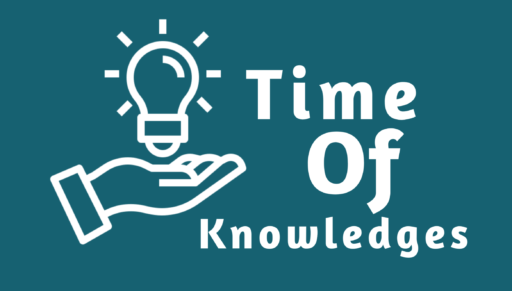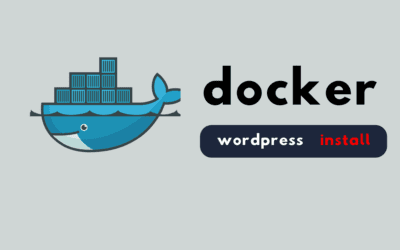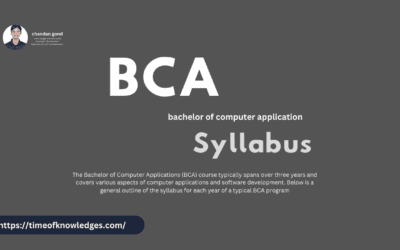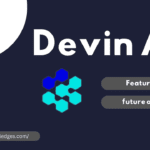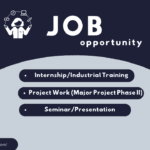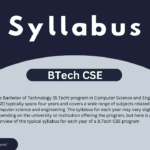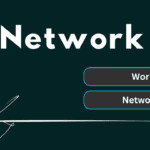Job opportunities Internship


Internship/Industrial Training detail mein :
Internship or industrial training is a crucial component of the Bachelor of Technology (B.Tech) program in Computer Science and Engineering (CSE). It provides students with practical exposure to real-world industry practices and helps bridge the gap between theoretical learning and practical application. Here are detailed insights into internship or industrial training during a B.Tech CSE program:
Purpose of Internship/Industrial Training:
- Hands-on Experience: Internships allow students to apply theoretical knowledge gained in classrooms to real-world projects and scenarios.
- Skill Development: Students acquire practical skills, problem-solving abilities, and industry-specific knowledge.
- Industry Exposure: Internships provide insights into organizational structures, work environments, and professional etiquettes.
- Networking: Students build professional networks and connections within the industry.
- Career Opportunities: Successful internships can lead to job offers or enhance employability after graduation.
Duration and Timing:
- Duration: Internship duration can vary but typically ranges from a few weeks to several months (e.g., 4-6 months).
- Timing: Internships are often scheduled during summer breaks or as part of the final year curriculum (e.g., Semester 7 or 8).
Types of Internships:
- Summer Internships: Conducted during summer vacations between academic years.
- Winter Internships: Conducted during winter breaks.
- Full-time Internships: Involves working full-time during the internship period.
- Part-time Internships: Involves working part-time while continuing academic studies.
Steps Involved in Internship/Industrial Training:
1. Preparation:
- Resume Building: Create or update a professional resume highlighting academic achievements, skills, and interests. Your resume build website name : canva
- Skill Enhancement: Acquire necessary technical and soft skills required for the internship role.
2. Internship Search:
- Apply: Explore internship opportunities through campus placements, job portals, company websites, or networking. linkedin , indeed
- Interview: Prepare for interviews by practicing common interview questions and showcasing relevant skills.
3. Internship Period:
- Orientation: Understand the company’s goals, projects, and expectations.
- Project Assignment: Work on assigned projects under the guidance of mentors or supervisors.
- Learning and Development: Gain practical experience, learn new tools and technologies, and collaborate with teams.
4. Documentation:
- Project Report: Prepare a detailed project report highlighting tasks, achievements, and learnings during the internship.
- Feedback: Seek feedback from supervisors and mentors to improve performance and skills.
5. Completion:
- Presentation: Present findings and outcomes of the internship project to peers, faculty, and industry professionals.
- Certificate: Obtain an internship completion certificate or letter of recommendation from the organization.
Benefits of Internship/Industrial Training:
- Skill Enhancement: Develop technical skills relevant to the industry.
- Industry Insights: Gain exposure to industry trends, practices, and challenges.
- Professional Growth: Build confidence, communication skills, and problem-solving abilities.
- Career Opportunities: Increase employability and potential job offers post-graduation.
Tips for a Successful Internship:
- Set Goals: Define learning objectives and goals for the internship period.
- Be Proactive: Take initiative, ask questions, and seek opportunities to contribute.
- Network: Build professional relationships with colleagues and mentors.
- Seek Feedback: Actively seek feedback to improve performance and skills.
- Document Learnings: Keep a record of tasks, achievements, and lessons learned during the internship.
Overall, internship or industrial training is a valuable aspect of the B.Tech CSE program that prepares students for future careers in the field of computer science and engineering. It is essential to approach internships with enthusiasm, professionalism, and a willingness to learn and adapt to new experiences.
Project Work (Major Project Phase II) detail mein:
Project Work (Major Project Phase II) is typically a significant component of the final year in a Bachelor of Technology (B.Tech) program in Computer Science and Engineering (CSE). It involves working on a comprehensive project that demonstrates the application of theoretical knowledge and practical skills acquired throughout the course. Here are detailed insights into Major Project Phase II:
Purpose of Major Project:
- Application of Knowledge: Apply theoretical concepts and practical skills to solve real-world problems or develop innovative solutions.
- Hands-on Experience: Gain practical experience in project planning, implementation, and management.
- Skill Development: Enhance technical, analytical, and problem-solving skills.
- Teamwork and Collaboration: Work collaboratively with peers and faculty to complete a substantial project.
- Showcase Abilities: Demonstrate competence in CSE concepts and technologies to potential employers or higher education institutions.
Key Components of Major Project Phase II:
1. Project Selection:
- Choose a project topic based on personal interests, industry relevance, and guidance from faculty advisors.
- Define project objectives, scope, and deliverables.
2. Project Planning:
- Develop a detailed project plan outlining tasks, timelines, resources, and milestones.
- Identify technologies, tools, and methodologies to be used in project implementation.
3. Project Implementation:
- Develop and implement the project according to the defined plan.
- Write code, design algorithms, build prototypes, and integrate components as necessary.
4. Documentation:
- Maintain comprehensive documentation throughout the project lifecycle.
- Document design decisions, implementation details, test cases, and results.
5. Testing and Validation:
- Conduct rigorous testing to validate project functionality, performance, and reliability.
- Address issues, bugs, and performance bottlenecks as they arise.
6. Presentation and Demonstration:
- Prepare and deliver presentations showcasing the project to peers, faculty members, and industry professionals.
- Demonstrate project features, functionalities, and contributions to the field.
7. Report Writing:
- Write a detailed project report documenting the entire project lifecycle.
- Include project objectives, methodology, implementation details, results, conclusions, and future recommendations.
Guidelines for Major Project Phase II:
- Faculty Guidance: Seek regular guidance and feedback from faculty advisors throughout the project.
- Timeline Management: Adhere to project timelines and milestones to ensure timely completion.
- Quality Assurance: Maintain high standards of quality in project design, implementation, and documentation.
- Innovation and Creativity: Encourage innovation and creativity in problem-solving and project development.
- Professionalism: Approach the project with professionalism, responsibility, and dedication.
Benefits of Major Project Phase II:
- Portfolio Enhancement: Showcase the project in resumes, portfolios, and job interviews.
- Problem-Solving Skills: Develop critical thinking and problem-solving abilities.
- Career Readiness: Gain practical experience relevant to future career roles.
- Academic Achievement: Contribute to academic excellence and innovation in the field of CSE.
Major Project Phase II is an opportunity for B.Tech CSE students to demonstrate their proficiency and readiness for professional roles in computer science and engineering. It requires dedication, teamwork, and a proactive approach to successfully complete a substantial project that adds value to the academic and professional journey.
Seminar/Presentation detaile mein :
In the context of a Bachelor of Technology (B.Tech) program in Computer Science and Engineering (CSE), seminars and presentations play a significant role in developing students’ communication skills, critical thinking abilities, and confidence in presenting technical topics. Here’s a detailed overview of seminars and presentations as part of the academic curriculum:
Purpose of Seminars/Presentations:
- Knowledge Dissemination: Share research findings, innovative ideas, or technical concepts with peers and faculty.
- Skill Development: Enhance communication, public speaking, and presentation skills.
- Critical Analysis: Receive feedback and engage in discussions to refine ideas and concepts.
- Professional Development: Prepare students for industry presentations, conferences, and job interviews.
Types of Seminars/Presentations:
1. Technical Seminars:
- Focus on specific technical topics, research areas, or emerging technologies in CSE.
- Include presentations on algorithms, software development methodologies, machine learning, cybersecurity, etc.
2. Project Presentations:
- Presentations showcasing the progress, findings, and outcomes of major projects undertaken during the course.
- Highlight project objectives, methodology, implementation details, and results.
3. Industry Seminars:
- Invited talks or seminars conducted by industry experts, researchers, or alumni.
- Provide insights into industry trends, challenges, and opportunities in the field of CSE.
4. Conference Presentations:
- Prepare and present research papers or projects at national or international conferences.
- Engage with a broader audience of researchers, practitioners, and academics.
Key Components of Seminars/Presentations:
1. Topic Selection:
- Choose a relevant and engaging topic based on personal interests and academic/professional goals.
2. Content Preparation:
- Conduct research and gather relevant information to develop the presentation content.
- Organize content logically with clear introduction, main points, and conclusion.
3. Visual Aids:
- Create visually appealing slides using presentation software (e.g., PowerPoint, Google Slides).
- Incorporate diagrams, charts, and images to enhance understanding.
4. Delivery:
- Practice presentation delivery to improve clarity, pace, and confidence.
- Use appropriate gestures, eye contact, and vocal tone to engage the audience.
5. Q&A Session:
- Prepare for potential questions and feedback from the audience.
- Address queries effectively and demonstrate subject matter expertise.
Tips for Successful Seminars/Presentations:
- Prepare Thoroughly: Invest time in research, content development, and rehearsal.
- Engage the Audience: Use interactive elements, anecdotes, or case studies to maintain audience interest.
- Be Clear and Concise: Present information in a structured and easily understandable manner.
- Seek Feedback: Request feedback from peers, faculty, or mentors to improve presentation skills.
- Stay Professional: Dress appropriately and demonstrate professionalism during the presentation.
Benefits of Seminars/Presentations:
b.tech cse full form ?
bachelor of technology computer science engineer
- Skill Enhancement: Improve communication, presentation, and interpersonal skills.
- Knowledge Sharing: Contribute to academic discourse and knowledge dissemination.
- Career Advancement: Enhance employability and readiness for professional roles in CSE.
- Networking Opportunities: Connect with peers, faculty, and industry professionals through presentations.
Seminars and presentations are valuable components of the academic curriculum that empower B.Tech CSE students to communicate effectively, showcase their work, and prepare for future career endeavors in the field of computer science and engineering. Embracing these opportunities can lead to personal growth, academic excellence, and professional success.
